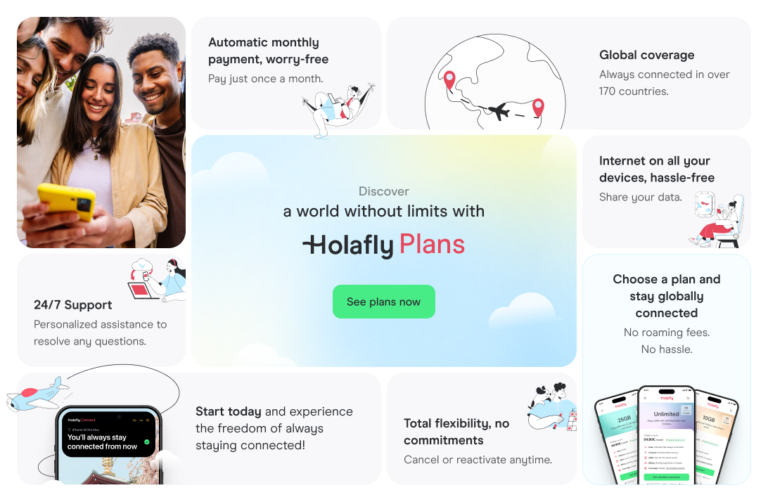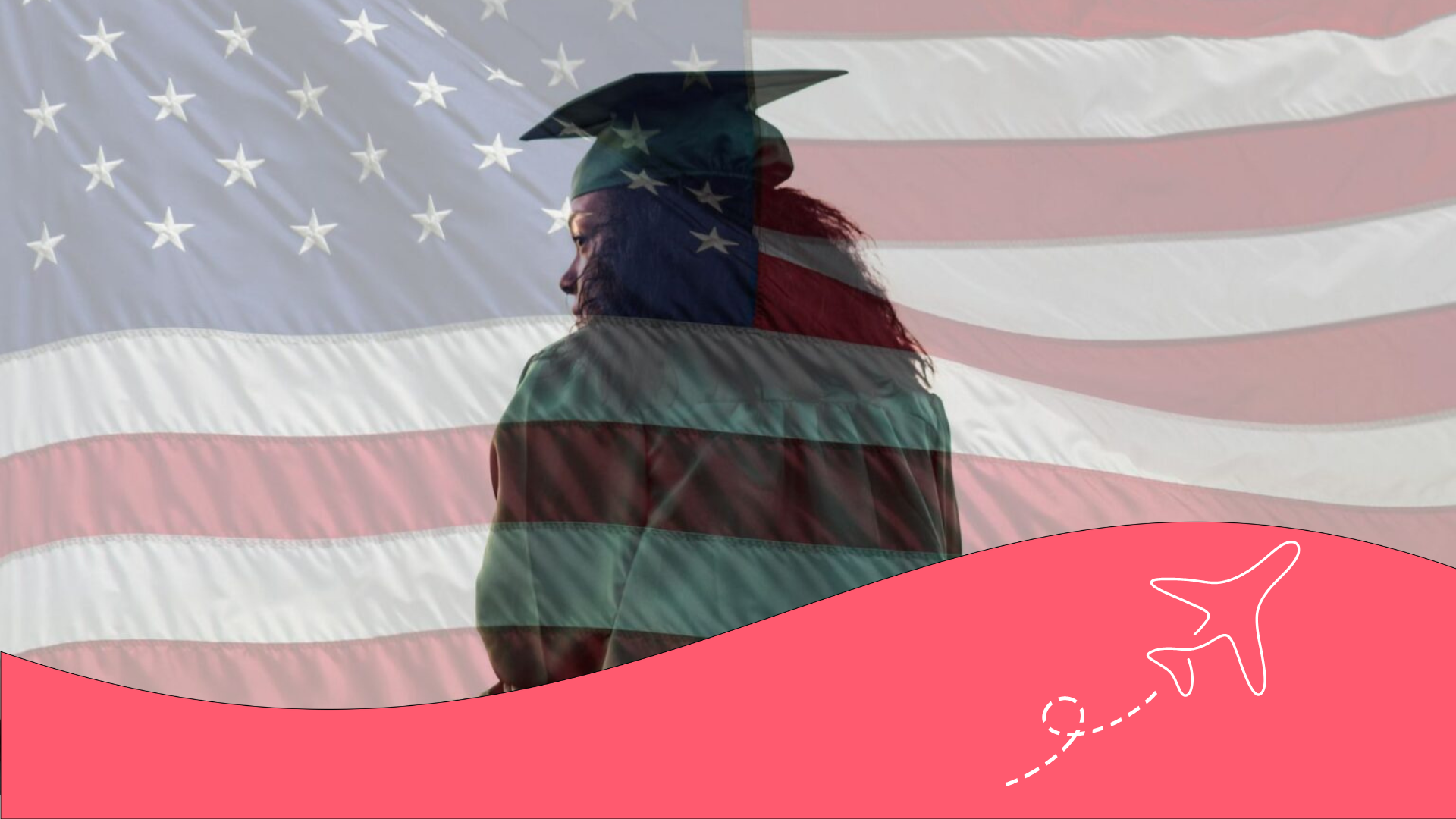Scholarship in South Korea: Requirements and how to apply
Go Hallyu and apply for scholarships to study in South Korea! We bring you the top five for you to choose from.
There’s a global Korean wave, known as Hallyu, that’s captured young people’s attention with its vibrant culture, award-winning films, trending TV series, K-pop music, and advanced technology. Have you also been swept away by this cultural phenomenon? Now, imagine experiencing it for a whole academic year by applying for a scholarship to study in South Korea.
The Korean government makes this dream easier by offering various academic programmes at internationally recognised universities. To support international students, South Korea has created scholarships like the Korean Government Scholarship Program (KGSP) and university-specific grants from institutions like KAIST and Yonsei University. Keep reading to find out how to apply, what the requirements are, and when to submit your application. If you’re selected, you’ll receive benefits like tuition coverage, travel expenses, and living allowances.
The 5 best scholarships to study in South Korea
Applying for a scholarship abroad takes time, research, and careful preparation of all required documents. Before your trip, make sure to get travel insurance. Most scholarships don’t cover this, and it’s helpful in emergencies.
You’ll also need a reliable internet connection. Holafly’s eSIM for South Korea gives you fast and stable data from day one. This way, you’ll be able to track your application and make changes quickly and securely. Now, after that travel tip, Holafly has put together a detailed guide on the top five scholarships to study in South Korea. Let’s get started!
1. Global Korea Scholarship (GKS) – South Korean Government
The Global Korea Scholarship (GKS) is offered by the South Korean government to support international students who wish to begin their postgraduate studies—either a master’s or PhD—at one of the country’s top universities. Its main goal is to strengthen academic and cultural exchange between South Korea and participating nations. Here’s what you need to know:
- General tequirements: Applicants mustn’t hold Korean nationality and must be under 40 years old. A minimum GPA of 80 out of 100 is required from previous studies. You must also be in good physical and mental health.
- Coverage and benefits: Full tuition fees paid, monthly stipend provided, return airfare included, medical insurance covered, one-year Korean language course offered and additional settlement allowance.
- Type of studies offered: Master’s and doctoral programmes.
- Target group: International students of various nationality.
- How to apply: You can apply through the South Korean embassy in your home country or directly via participating Korean universities.
- Opening date: February.
- Closing date: Usually in March.
2. KOICA Scholarship – Korea International Cooperation Agency
The Korea International Cooperation Agency (KOICA), a government-run institution, offers fully funded scholarships for international professionals from developing countries to study in South Korea. These master’s programmes are designed to attract skilled professionals who can contribute to the socio-economic development of their home nations. This institution offers 100% covered scholarships to public sector civil servants from countries in Asia, Africa, the Middle East and the Americas. Could this scholarship be for you? Please note the conditions:
- General requirements: Relevant work experience in the public sector or a development-related organisation. A completed undergraduate degree.
- Coverage and benefits: Full tuition coverage, monthly stipend provided, accommodation included, health insurance covered and round-trip airfare.
- Type of studies offered: Master’s degrees in areas related to development.
- Target group: Public sector professionals from developing countries.
- How to apply: Apply through KOICA country offices or South Korean embassies in eligible countries.
- Opening date: March.
- Closing date: May.
3. Scholarships of the National University of Seoul (SNU)
This prestigious scholarship from Seoul National University (SNU) supports outstanding international students pursuing a PhD in South Korea. The programme aims to promote cultural exchange and ensure top-quality academic training. Applicants must hold a master’s degree from a reputable institution and have an academic or research role there. Here’s a detailed breakdown:
- General requirements: Mustn’t hold South Korean nationality, must have a Master’s degree from a recognised university and an excellent academic record.
- Coverage and benefits: Full tuition exemption for six semesters., monthly stipend of 1,500,000 to 2,000,000 KRW (approx. $10,500–14,000 annually) for 3–4 years and health insurance. Moreover, it offers round-trip airfare, Korean language course and childcare support available.
- Type of studies offered: Doctoral programmes.
- Target group: International students with remarkable academic performance.
- How to apply: Submit your application through the SNU admissions portal: www.en.snu.ac.kr
- Opening date: Between March and September.
- Closing date: One month after opening.
4. Gwangju Institute of Science and Technology (GIST) Scholarship
The GIST Scholarship is offered by one of South Korea’s top research-focused institutions, the Gwangju Institute of Science and Technology. It supports international students pursuing undergraduate, master’s or doctoral studies in science and technology. Thanks to this programme, GIST has grown into a leading academic centre with a high volume of research publications. If you’re passionate about science, here’s what you need to know:
- General requirements: Mustn’t be a South Korean citizen, nor have parents with Korean nationality, must hold the required degree for the chosen programme and applicants must begin their studies in the first semester.
- Coverage and benefits: Full tuition fee waiver, monthly stipend for living expenses, on-campus accommodation for approx. $70/month and medical insurance with 60% reimbursement.
- Type of studies offered: Undergraduate, master’s degree and doctorates in science and technology.
- Target group: International students interested in research.
- How to apply: Apply through the official GIST website: www.gist.ac.kr
- Opening date: March.
- Closing date: May.
5. KAIST Scholarship for International Students
KAIST (Korea Advanced Institute of Science and Technology) is one of Asia’s top public research universities. It specialises in science, engineering and technology. The university offers a competitive scholarship programme for international students pursuing undergraduate, master’s or PhD degrees. Here’s what you need to qualify:
- General requirements: Mustn’t hold South Korean nationality, proof of English proficiency (TOEFL or TOEIC) and previous studies completed outside of South Korea.
- Coverage and benefits: Full tuition fee exemption, monthly stipend of 350,000 KRW (approx. $245 ) and health insurance included.
- Type of studies offered: Bachelor’s, Master’s degree and doctorates.
- Target group: International students worldwide interested in tech and science disciplines.
- How to apply: Submit the admission form via KAIST’s official portal: www.kaist.ac.kr.
- Opening date: Between September and November.
- Closing date: One month after opening.

Tips on how to get a scholarship in South Korea
With these five scholarships to study in South Korea, you’re one step closer to gaining a world-class education in one of the most technologically advanced countries on the planet. However, the application process can be competitive. Students from all over the world apply, and selection criteria are strict. To increase your chances of success, it’s not enough to have excellent grades. You’ll need to stand out in other key areas too. Here are some useful tips:
- Learn Korean: Even though Korean isn’t always a requirement, taking a Korean language course shows strong motivation. Including this on your application can demonstrate cultural interest and commitment.
- Write a personalised motivation letter: Avoid generic personal statements. Tailor your essay specifically for South Korea. Explain why you want to study there and what you’ll contribute to the country. Link your goals with the values of the scholarship and programme.
- Research universities and courses thoroughly: Some scholarships, like the GKS, require you to choose your preferred universities and study programmes at the time of application. Explore your options in advance, including the language of instruction and course content.
- Customise your essay for each programme: Each university and scholarship may have different educational goals. Make sure your personal essay clearly shows how your profile fits those objectives.
- Prepare an academic portfolio: Showcase your achievements through awards, publications, research, or any significant academic or professional project.
- Understand visa and residency requirements: After securing a scholarship, you’ll need to apply for a D-2 student visa. Make sure you understand South Korea’s immigration rules. Check whether your scholarship includes visa support or guidance through the application process.
- Be punctual with deadlines: Punctuality is highly valued in Korean culture. Prepare all your documents ahead of time, including mandatory translations. Submit your application as soon as the window opens.
Important: If you are a frequent traveler and want to stay connected without worrying about expensive roaming or looking for a new SIM at every destination, Holafly’s subscription plans are for you. With a single eSIM, enjoy internet in more than 170 countries for a fixed price and no surprises on your bill. Travel without limits and connect easily and securely! 🚀🌍

The outstanding universities to study in South Korea
South Korea is known for its high-performing academic system, reflected in its globally recognised universities. Here’s a quick overview of the most prestigious institutions in the country:

| University | Acknowledgements | Outstanding degrees |
|---|---|---|
| National University of Seoul (SNU) | Ranked as the top university in South Korea by QS World Rankings. | Engineering, Economics, Social Sciences, International Studies, Medicine. |
| KAIST, Daejeon | Recognised as Asia’s leading technology institution. | Engineering, Technology, Natural Sciences, Artificial Intelligence. |
| Yonsei University, Seoul | Famous for its prestigious English-taught programme “Underwood International College”. | Business Administration, Global Studies, International Relations, Law. |
| University of Korea, Seoul | Part of the prestigious SKY group (SNU, Korea University, Yonsei). | Biomedical Engineering, International Business, Biotechnology, Political Science. |
| POSTECH University, Pohang | Known as one of Asia’s top private universities for science and technology. | Computer Science, Physics, Chemistry, Robotic Engineering. |
| Sungkyunkwan University (SKKU), Seoul and Suwon | Backed by Samsung, with strong prestige in research and tech innovation. | Humanities, Pharmacy, Artificial Intelligence, Asian Studies. |
| Ewha Womans University, Seoul | The world’s largest and most renowned women’s university. | Recommended programmes: Literature, Design, Gender Studies, Global Business. |
Frequently Asked Questions about scholarships to study in South Korea
The most comprehensive scholarship is the Global Korea Scholarship (GKS) programme. It covers full tuition fees, accommodation, round-trip airfare, a monthly stipend, health insurance and Korean language courses. It’s ideal for international students looking for fully funded study opportunities in South Korea.
Yes, most scholarships cover full tuition fees and offer extra benefits like a monthly stipend, health insurance and housing. This includes the GKS scholarship and those offered by top universities like KAIST.
Common requirements include strong academic results, letters of recommendation, proof of English skills (TOEFL or IELTS), or Korean (TOPIK). You’ll also need a personalised motivation letter tailored to each programme.
Yes, you can apply for as many as you like. However, if you’re awarded more than one, you’ll need to choose just one. You can’t receive two scholarships at the same time.
No, Korean isn’t mandatory as many programmes are taught in English. Still, knowing Korean can help you stand out. Programmes like GKS also include intensive Korean language training to help with your adaptation.





 Language
Language 


















 No results found
No results found







